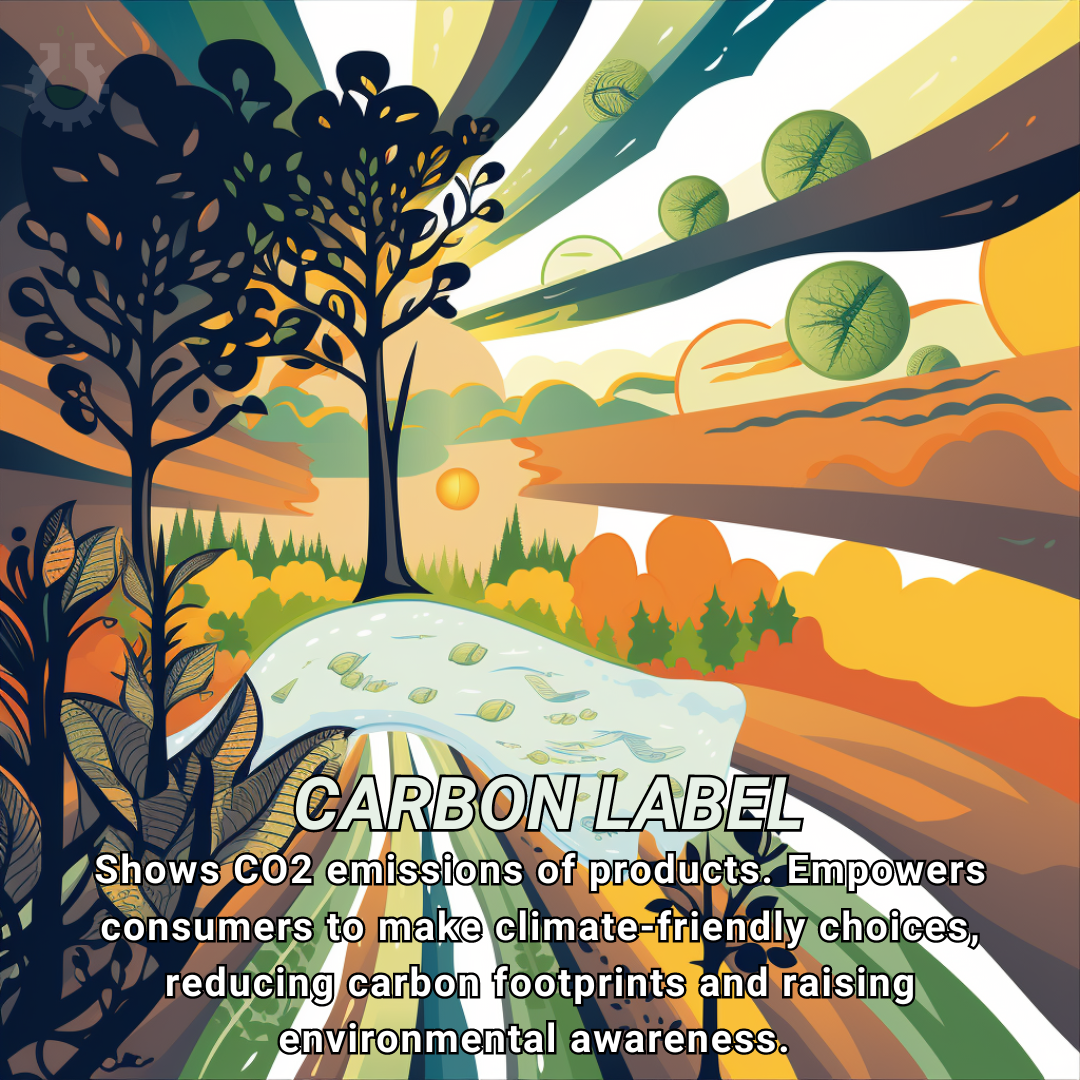October 27, 2023
Climate Change Poster Collection of the Day – Carbon Label
Book a Demo
Today’s Climate Change Poster Collection focuses on Carbon emission label, or carbon label describes the carbon dioxide emissions created as a by-product of manufacturing, transporting, or disposing of a consumer product. This information is important to consumers wishing to minimize their ecological footprint and contribution to global warming made by their purchases. In recent years, there has been an increasing focus on the role of diet in mitigating climate change. One of the key ways individuals can reduce their carbon footprints is by adopting plant-based diets. This lifestyle change can significantly contribute to global efforts to combat climate change, by minimizing the greenhouse gas emissions associated with animal agriculture.
However, influencing individual dietary habits on a large scale requires concerted efforts from both the government and the food industry. One effective strategy that has been proposed is the implementation of carbon footprint labels on food products. These labels provide consumers with information about the environmental impact of their food choices, encouraging them to opt for more sustainable options.
The effectiveness of carbon footprint labels is highly dependent on public awareness and understanding. It is crucial that consumers know how to interpret these labels, and understand their relevance to climate change. Studies have shown that when consumers are educated about the significance of carbon footprints, they are more likely to make environmentally-friendly food choices.
A key aspect of carbon footprint labels that has shown promise in guiding consumer behavior is the use of color-coding, similar to traffic lights. This visual aid has proven to be a strong tool in helping consumers quickly and easily identify sustainable food options on grocery shelves.
However, it is not only understanding that influences how consumers react to carbon footprint labels. Personal values and beliefs also play a significant role. For instance, individuals who are more environmentally conscious are likely to respond more positively to these labels, and utilize them to make sustainable food choices.
Despite the potential of carbon footprint labels as a tool for promoting sustainable diets, further research is needed to fully understand their impact on consumer behavior and overall climate change mitigation strategies. There are still many unknowns, including how different demographic groups react to these labels, and how they influence long-term dietary habits.
In addition, the role of educational campaigns in increasing consumer understanding of carbon footprint labels should be explored. As these labels become more common, it is crucial that consumers are provided with the necessary knowledge to make informed decisions about their food choices. Through a combination of public education and clear, accessible labeling, we can encourage more sustainable diets, and make a significant contribution to the fight against climate change.
Discover an inspiring collection of climate change poster.



